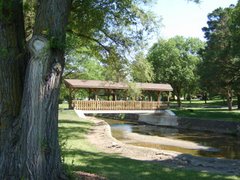(Ed. note. I have published without editing the information presented by Mr. Cole regarding the AP Physics and Chemistry. It is a little long, but well worth the read.)
I have taught Advanced Placement (AP) Chemistry and AP Physics off and on since the early ‘80’s. I have found that schools offer AP programs for a variety of reasons.
To provide qualified students with advanced course offerings.
To enhance the prestige of the school.
To demonstrate the school’s commitment to supporting meaningful, quality educations for their high-ability students.
To provide an incentive (a ‘carrot’) for advanced students to pursue.
To reward advanced students with prestigious course listings on their transcripts.
To ensure the proper rigor of pre-AP courses are maintained.
The advanced biology and AP-level courses in chemistry and physics have always been considered the capstones of the science curricula. Not only do they keep the students focused on higher goals, they also tend to keep the instructors focused on maintaining and improving the level of instruction at the pre-AP level.
During most of the last decade, the science department has done much to improve the level of their offerings and enhance the students’ preparation for college classes in the sciences. We have:
fought for higher level textbooks in Chemistry, Biology, Earth Science and Physical Science,
raised the level and expectations in the Physical Science class, making it the Physics and Chemistry preparatory class it should be.
adjusted the curriculum sequence and now recommend that students take Conceptual Physics prior to chemistry, as we feel physics is fundamental to understanding chemical concepts and theories, and
added offerings such as Anatomy & Physiology and Astronomy.
During this same time period our student enrollment in physics has climbed from one section of 18 students to nearly 100 students this coming year! Chemistry has also posted a steady, though smaller, enrollment increase during the same time period, meaning enrollment in one has not come at the expense of enrollment in the other. Each of these changes has come with a struggle against budget constraints and a variety of changing Administrators with conflicting interests and goals. Initially there was also resistance from some of the students and parents who were saying things like, “Well, my sister/brother took this class and they didn’t have to do this much work!” Now the students are coming in expecting a higher level of effort, and (hopefully) getting a higher level of satisfaction as well. I firmly believe that when you ‘raise the bar’, the students will rise to meet it.
The AP program is just one of several programs available for upper-level students. It is one of the oldest such programs around and bases its evaluation solely on the outcome of a final evaluation. The CAPP (Cooperative Academic Partnership Program) and IB (International Baccalaureate) programs work with certified instructors to provide off-campus extensions of college level courses, in which the students are evaluated continuously throughout the course.
There have always been issues surrounding AP Biology and AP Physics B, as both have been widely criticized for requiring coverage of too much material. AP Chemistry has faired better in this regard. According to the College Board, which regulates the AP programs, “The AP chemistry course is designed to be the equivalent of the general chemistry course usually taken during the first college year.” (Chemistry Course Description, The College Board, 2006, p. 3, often referred to as the ‘Chemistry Acorn Book’) Their course description for the English Literature program further spells it out as, “although the specific college courses that AP credit will satisfy differ from college to college, each exam represents a year’s college-level work. Therefore, the amount of credit that may be given for each exam is the same: up to two semesters of credit for the appropriate grade on either exam.” (English Course Description, The College Board, 2006, p. 3, often referred to as the ‘English Acorn Book’. The italic in the quote is theirs.)
Not all college courses are created equal. Freshman Chemistry is considered the ‘weed-‘em-out’ class for Pre-Med students, while Freshman Physics is considered the ‘weed-‘em-out’ class for Pre-Engineering students. These classes are extremely difficult for college level students even with some recognized aptitude for science. To expect a college student to take that kind of class in one semester is not reasonable for any except a small handful of students. I don’t see how one could reasonably expect reasonably advanced high school students to receive two days worth of material in one day, do the homework, digest the material and be ready to come in the next day for two more days worth of college level material.
One of my major dilemmas, as the AP science instructor, has been to balance the need for advanced level classes with anticipated enrollment. To expect a dozen EHS students to be able to do a hard-core AP Chemistry or Physics class is really stretching it. If I were to conduct a ‘fully’ AP level chemistry class at EHS, I would expect to find only 3-4 students capable of the commitment. However, getting approval for a class of 3 or 4 is ‘iffy’. Besides, I personally begin to feel uncomfortable, for the District’s sake, committing myself to teaching a small class while other class sizes are growing.
On the other hand, if I relax the in-class expectations a little, I open the doors to additional students who would like the additional challenge, but aren’t ready for the heavy AP commitment. Out of that larger class, the same 3-4 students are capable of taking the Exam that would have taken it otherwise, but now it ‘looks bad’ because the percentage passing is down, even though it is the same number as before. Actually, to make matters even worse, I have always recommended that ALL my students take the Exam, ready or not. It built camaraderie, stretched the lower students into doing better, avoided obvious differentiation (as in ‘finger-pointing’) between students who were (or weren’t) taking the exam, and gave everyone the experience of taking that form of high-level Exam.
My biggest concern, at the moment, is the plan to reduce the current AP classes from three quarters to two quarters and insisting on it’s becoming “hard-core” AP at the same time. My original conversations with Ms. Gillespie and Mr. Benson led me to believe next year’s classes would be more of an Honors type class, with students desiring to take the AP Exam continuing their preparation via APEX or some other additional form of study. I could easily have seen something like that happening, and was quite comfortable with that idea as a temporary compromise. It could also provide the opportunity to touch on other subjects that are not covered on the AP Exams, such as: Chromatography, Spectroscopy, Biochemistry and Organic Chemistry. I also would regret the loss of enhancements such as participating in the flying program and the synchrotron research program.
I made a brief survey of other schools listed on the Wisconsin DPI’s website as using the Full Block Schedule, and have included the results below. Though it is not impossible to provide an AP chemistry class in two terms, both schools listed as doing so warned that there would be extensive additional work involved.
Though my personal opinion is that the two-quarter AP class is not the best way to go, I will, as always, make the best of what I have to work with.
R. Cole
Summary of Information Gleaned from Twenty Five Schools Listed by the DPI as Utilizing the ‘Full Block Schedule’
Type of Course Offering Offered in Four Quarters Offered in Three Quarters Offered in Two Quarters Offered in One Quarter Total Courses Offered
AP Chem 5 (24%) 2 (10%) 7 (34%)
CAPP Chem 1 (5%) 1 (5%)
Non-AP 4 (19%) 8 (38%) 12 (57%)
Twenty one of the twenty five listed schools indicated offering some sort of advanced chemistry class. Percentages are based on the numbers of schools actually found offering an advanced course. Evansville High School is part of a different list including schools with mixed block scheduling due to our use of ‘skinnies’. It would be interesting to contact the schools offering AP Chemistry in two quarters and asking about specifics of their programs.
Wednesday, June 14, 2006
Subscribe to:
Post Comments (Atom)































No comments:
Post a Comment